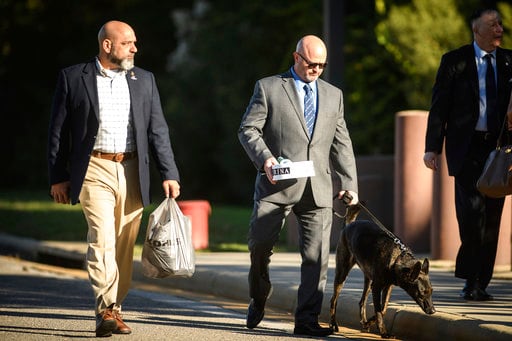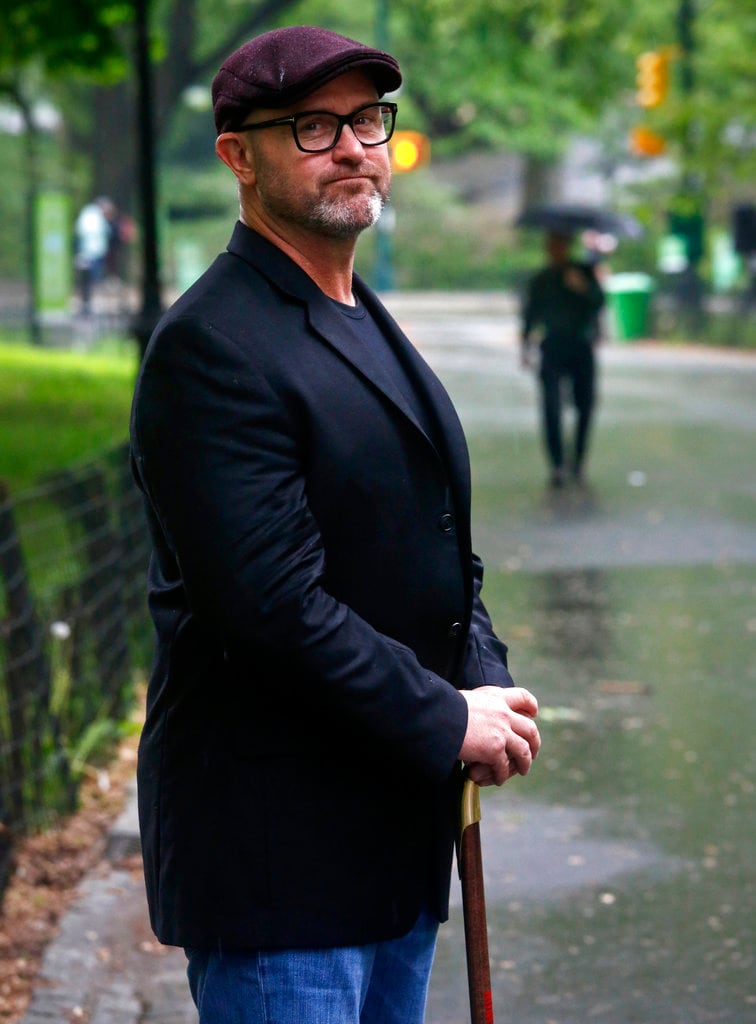Retired Navy SEAL James Hatch was adamant about avoiding “Action Man” cliches in a memoir that offers wrenching detail on mental and physical wounds that nearly drove him to suicide.
In fact, Hatch’s book never uses the term “Navy SEAL,” an approach solidified during a conversation with a fellow commando embarrassed by its ubiquity in books and movies.
“I didn’t want to use it, either,” Hatch said in a phone interview. “I wanted the story to be able to stand on its own.”
The title of “Touching the Dragon: And Other Techniques for Surviving Life’s Wars,” released Tuesday by Alfred A. Knopf, refers to a technique Hatch learned in a mental hospital after his wife encountered him at home with a gun in his mouth. The approach involved writing, over and over, about the night that he suffered a career-ending wound searching for Army Sgt. Bowe Bergdahl, who walked off his post in Afghanistan.
That written recollection sets the stage for Hatch’s reflection on how commandos fighting abroad cope with returning to civilian life and, as Hatch writes, “shoulder the darkness that accompanies such work.”
Hatch endured 18 surgeries to fix skin and bone mangled by an enemy bullet. As he recovered, Hatch struggled with dark thoughts about his missions.
RELATED

In the book, he explains the purpose of writing about what troubled him: “you hate yourself for flawed reasons. So expose them. When you face it, the dragon you think is going to incinerate you, doesn’t.”
Last year, Hatch was among a handful of searchers whose wounds were used as evidence at the politically charged sentencing for Bergdahl, who pleaded guilty to deserting and endangering fellow service members. Bergdahl received a dishonorable discharge, but no prison time.
“I did not see the evidence that the judge saw. I don’t know what happened to Sgt. Bergdahl after he was captured,” Hatch said in the interview. “I’m at peace because he got a dishonorable discharge, and that’s a life sentence.”

The book makes judicious use of combat imagery. A seven-page description of a nighttime Afghanistan mission ends without gunfire, but Hatch notes how civilians’ horrified expressions struck him. When gunfire is described, it makes a point about the grimness of war, such as the death of the military dog Spike, the namesake of Hatch’s charity.
Hatch wanted to use fewer wartime sequences but relented to co-author Christian D’Andrea.
“Christian’s argument was that we needed to build a scene so that people could understand the background before I got to the point where I needed help,” Hatch said, adding that he sought to avoid “bragging, videogame-esque vernacular.”
Also at the book’s core are descriptions of how his wife and fellow service members kept his recovery on track.
“I could not deny that people cared for me,” Hatch said in the interview. “And that said everything I needed, really.”
